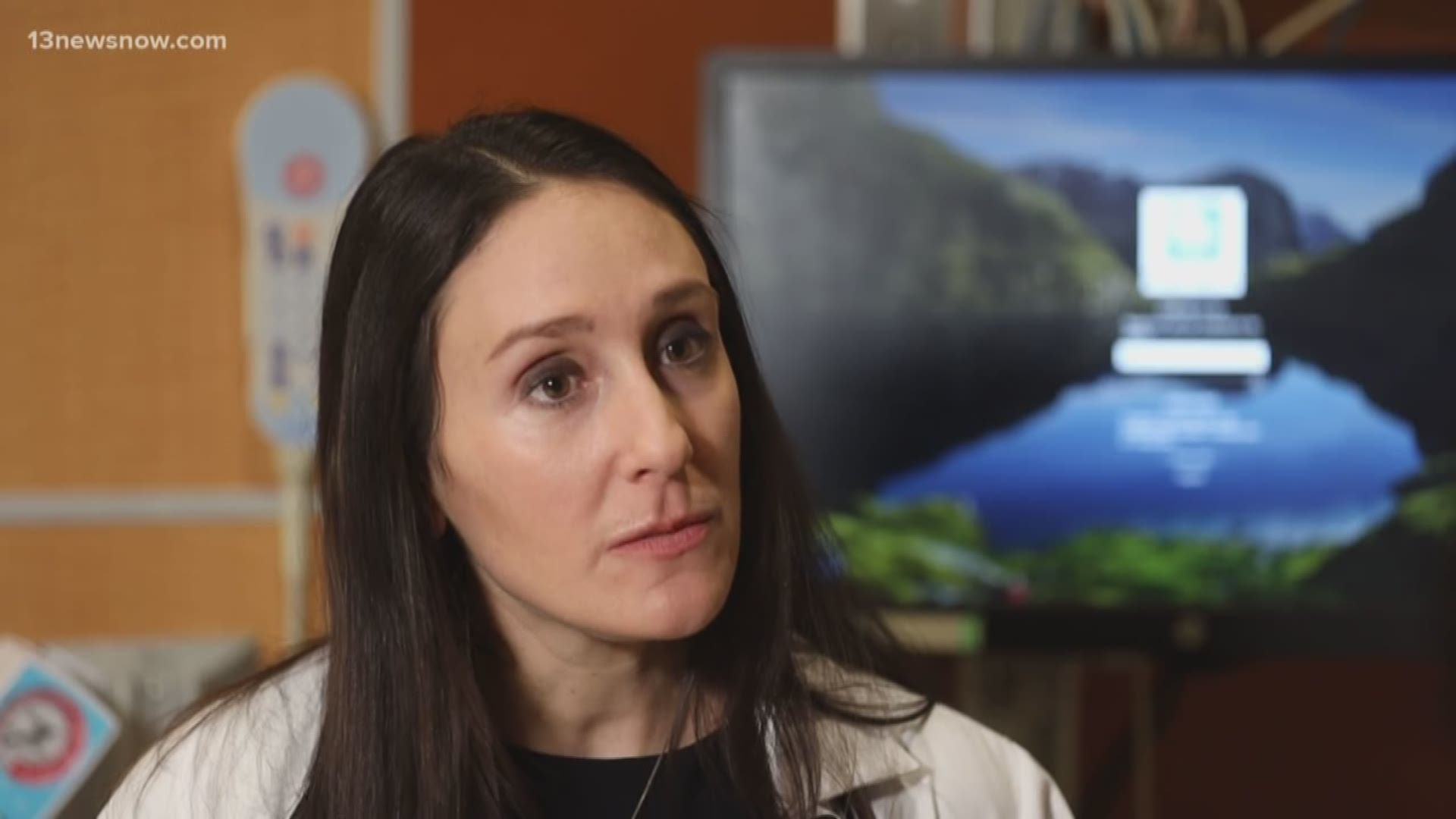NEWPORT NEWS, Va. — Dr. Rebekah Sensenig, D.O. is the Infectious Disease Specialist for the Riverside Medical Group based in Newport News.
She and her team are closely monitoring Covid-19 developments. She warns the virus is very transmissible and can be very dangerous for the elderly and people with underlying conditions.
Dr. Sensenig answered questions for 13News Now.
Q: Treating Covid 19. How difficult is it to treat?
Sensenig: It's very difficult to treat... what we have to remember first, not everyone will need treatment. Most of the patients are going to have a mild illness, so it's just supportive care for them; rest, fluids, systematic relief with Tylenol and Motrin. For the patients who have more severe illness, we do not have any FDA approved treatments and that's where we are really running into a lot of the issues. The patients come in and if they are critically ill, there's nothing we can do other than support them.
Q: In terms of some sort of protocol, it could take some time?
Sensenig: It could take some time for sure. There are a lot of studies going on right now. There are some drugs that have offered some hope that there is going to be some benefit from them and we're working with the drug companies to try to get them for compassionate use protocols but the data is not there yet and there are a lot of studies to be done.
Q: Talk a little bit about people who are most at risk and people who are less at risk.
Sensenig: The majority of people are at a lower risk of the severe illness. The people who are going to have greater severe illness are the elderly -- and when we say elderly, we mean greater than 60 -- and the people with greater comorbidities. And the comorbidities that we are most worried about are pulmonary disease, so anyone who has COPD and other lung issues, diabetes, immunosuppression, so people who have a lower immune system are going to do worse with this illness.
Q: You're a parent. What are some of the things that you're doing and telling your kids to do?
Sensenig: I have been very very strict with my children in terms of handwashing. I have a bottle of Purell when they come in the door, so they know the second they come home from school they are supposed to Purell their hands. And then I actually prefer that they wash their hands but they seem to remember to Purell a little more than they do the handwashing. We're also very strict with our cleaning. My son the other day, he went around and wiped all the handles to everything with Clorox wipes, so we're being very aggressive with that. I'm really telling them how important it is for them to wash their hands before they eat, that they wash their hands before they are touching their face and really trying to keep their hands away from their face, which is hard for children to do.
Q: Where would you predict this is going? How bad could this get? I've heard 70 million Americans could get this.
Sensenig: The concerning thing about Covid-19 is it is very transmissible. So typically someone with the flu can transmit it to maybe one other person. Covid-19 is shown to transmit to two or three people, so very much an increase in the number of people that that one person will transmit the virus to. What that means to us, if you think about the logarithmic growth, you go from 1 to 2, 2 to 4, 4 to 8, 8 to 16 and then it just explodes from there. And so this could have very widespread implications and a lot of people could be infected.
Q: When should someone self isolate?
Sensenig: If you are sick, self isolate, even if you don't know that you have Covid-19. If you have an upper respiratory illness, you should be staying home and staying away from the public. That's number one. If you are exposed to someone you know has Covid-19, you should be self-isolating and that's for a 14 day period.

